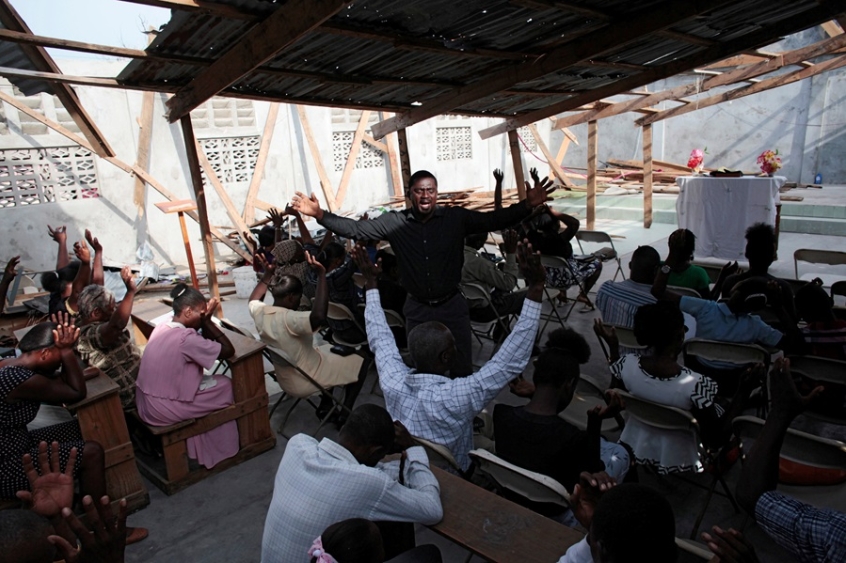
Faith or no faith, this last year has been difficult for many of us, so it would be little wonder if people are asking the question: 'why?' And especially, 'why God?'
'Why would a God of love allow such things to happen? Why does a good God allow suffering?'
These are age-old questions and ones that are not easy to answer, even for the most well-versed theologians.
Dr Roger Abbott, Senior Research Associate in 'Natural' Disasters at the Faraday Institute, wants to help Christians and non-Christians alike think through some of the possible answers to these challenging questions.
But more than that, he wants people to see that God really is there in the midst of it all carving the most unlikely good out of often terrible and heartbreaking situations. After all, it's what he's witnessed firsthand in years of speaking to survivors of natural disasters.
It is with this perspective in mind that he has penned his new book, "What Good is God? Crises, faith and resilience", co-authored with Cambridge geophysics professor Robert Whyte, a book that doesn't simply present their views on the subject but the views of survivors themselves.
Dr Abbott speaks to Christian Today about the relationship between God and suffering, and why the truth is so much better than what we may naturally be inclined to think.
CT: The title of the book, "What Good is God?", is a question even mature Christians can struggle with. How can we reconcile our faith in a God who is good and with a God who also allows tragedies and terrible things to happen in our lives?
Dr Abbott: As you say, that question has been asked over many centuries; nearly every generation has asked it. In some ways, no one has ever really been able to come up with an answer that completely satisfies; otherwise we wouldn't still be asking the question!
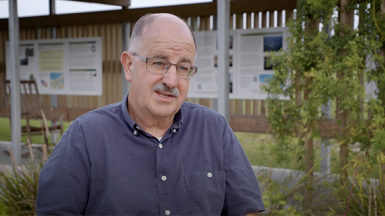
But in my own research into so-called 'natural' disasters, what has been so remarkable to me is that for those who have suffered such incidents, they weren't really asking that question because for them, the cause of their disaster was very self-evident. That is, that this wasn't something caused by God but was rather something caused by human error or human ignorance.
That's been a recurring theme in so much of the work I've done to the extent that my strapline now is that 'there's no such thing as a natural disaster, natural disasters are human'. There has admittedly been some pushback from Christians towards my perspective on this but I continue to bang this drum because that is where the evidence is pointing.
Some people say 'well, no, it can't be only human, there must be some kind of divine involvement in this and therefore there must be some kind of divine problem that we need to answer'.
But I would say we need to be careful with that kind of perspective because of course God is involved in these things; He's creator, sovereign, and governs all life. But He also, as God, has given us humans huge responsibilities and therein is the problem. Because if you look carefully at things like earthquakes, floods, hurricanes or even viruses, many of these natural occurrences and even hazards are to some extent necessary for the wellbeing of life on earth. Believe it or not, in the bigger context, these all contribute in their own way to sustaining a healthy earth.
So the real question is: how have they become disasters and killers? Wherever you look, it's because we as human beings have lost the capacity and wisdom to know how to steward God's creation in a way that is safe - and it can be stewarded safely. How did 230,000 people die in a matter of seconds in Haiti? Was it because God did that? No. It was because so many buildings were not built properly.
So I'm a great believer in the human aspects of disasters because these are things that, if we wanted to, we could put right very quickly. And the outcomes from that would be very different from what we are witnessing and have witnessed. My take is not popular but it's what I would call an evidence-based take.
CT: The book seems very timely and prophetic given what's happened this year.
Dr Abbott: Yes, very much so. The process for the book started in the summer of 2018 when there was no hint of coronavirus. There had of course been Ebola and Dr Linda Mobula addresses that in her chapter of the book, but there was no coronavirus at that time.
The original publication date was supposed to be January 2020 and we were disappointed when for publisher reasons, it had to be moved back to November 2020. But in the end it gave us time to add in an additional chapter on Covid to bring the book completely up to date. So while we were disappointed at the time, we can see now in hindsight how well it's worked out.
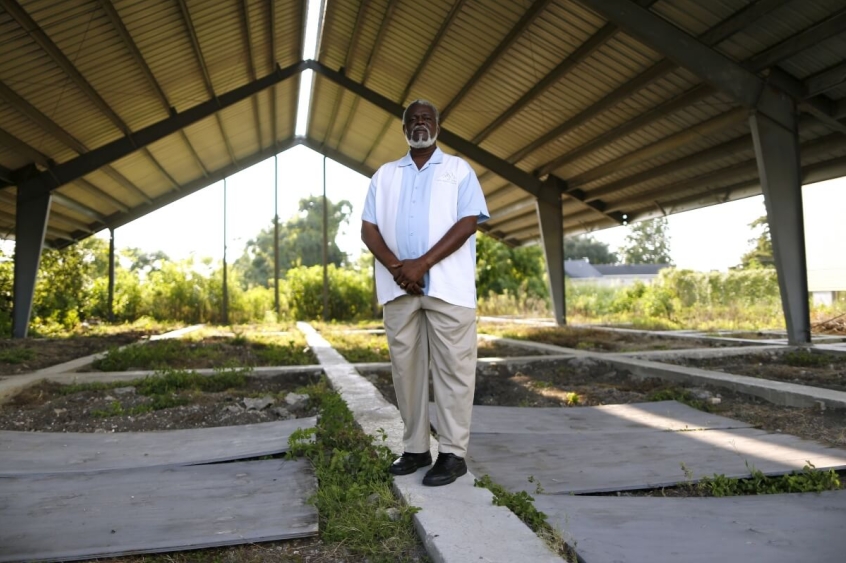
CT: What would you say to people who think that things like coronavirus, for example, are God's judgement?
Dr Abbott: There's always been a group of people saying that some disaster or another was God's judgement, and I'm sad to say that they've often been Christians of some description. They say 'we know why this has happened and it's because there were naughty people living in that part of the world and this is God's clear message that they were bad people'.
That, quite frankly, is unbiblical but it's also immoral and profoundly unethical unless we can say with certainty that there are people today who have a very clear prophetic gift given to them to say exactly what the mind of God is, which of course was the case with the prophets in Scripture. The things that happened to Israel, for instance, were clearly a judgement of God but to simply extend that to any and every disastrous situation that happens in the world through time is a complete abuse of the Scriptures.
CT: You observe in your chapter in the book that there's a difference between survivors of disasters and spectators of disasters i.e. those who are not directly affected but are rather looking on at the situation from afar. What difference have you found?
Dr Abbott: I made that point because when I interviewed nearly 200 survivors of the 2010 Haiti earthquake, hardly any of them blamed God for what had happened and hardly any were asking 'where was God when this happened?'. That question just wasn't there.
I was in Haiti 10 months after the earthquake, when cholera was at its worst. I was a chaplain at the time and working in a field hospital where I had the opportunity to listen to the people, many of whom had already suffered devastation from the earthquake, and in some cases lost loved ones or homes.
They had survived all that only to then be sickened by this awful cholera - and cholera can kill you within three hours if you don't get proper treatment. Yet they were still singing praises to God and thanking God; they weren't blaming God. This is what inspired me to return to Haiti as a researcher; I wanted to know why this was the case. Because the natural assumption is that they should somehow be haunted by questions like 'why did God allow this to happen?'. 'Where was God when this was happening?' 'Can't God do something about this?' Yet they just weren't in that place mentally. I would say they were in a better place.
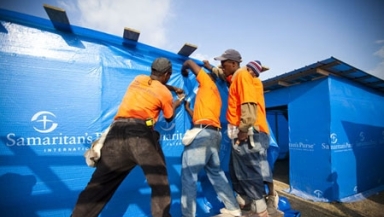
CT: Do you think that people from wealthier countries perhaps struggle with those questions more?
Dr Abbott: Perhaps those of us in Western countries who have been taught to question these issues philosophically or academically may be more inclined to ask these kinds of questions but even when I was in Somerset after the terrible flooding they had there in 2014, the people there weren't asking me 'where is God in this?'. And in my more recent interviews among Christians affected by Covid, neither have they been asking this question. It's spectators in my view who have the luxury of enjoying good health - for the moment - who tend to ask that question and demand an answer.
When I came back from Haiti, the co-editor of the book, Professor Robert White, asked me what lessons I had learned. Although it was still early on in my research, there was one thing I was fairly certain of. I told him: "If what happened in Haiti happened here in the UK, we just would not cope with it." And I'm reminded of that conversation now. Here in the UK, we just are not coping with this pandemic at all. We're not prepared and we just don't know what to do.
That's why there's so much angst and blaming each other, even in the Christian Church. That's what disturbs me most. There's so much vitriol and division among Christian people in all of this and to me that's indicative that we haven't prepared and Covid has caught us completely unawares as a spiritual community.
CT: The book argues that good can also come from disasters. What good can we look for if we ourselves are faced with the unexpected?
Dr Abbott: In disasters you see the worst of humankind but you also see the best and that's what's so extraordinary. Ken Taylor touches on that in his chapter dealing with Hurricane Katrina. It's an extraordinary demonstration of God's common grace, that He sends the sunshine and rain on the just and unjust. There is a huge amount of good that comes out of these kinds of tragedies. Just think of the humanitarianism and altruism, and the capacity of communities to be resilient, to come together and to appreciate one another.
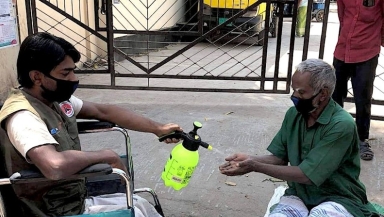
I saw that in Haiti as well. The first responders in Haiti were the Haitian people, those helping to pull their neighbours out from buildings, comforting one another, taking people in. There is so much good like this that happens and yet we don't concentrate on that or think too much about it. We tend to think about what went wrong and not what went right.
In effect, we can become consumed with the horror of the disaster and obviously that is very big, but if the horror becomes all-consuming, we will forget how much we've taken for granted the simple truth that life is fundamentally good. And that's when we will start to question: 'so why did God allow this to happen?' And 'where was God?'. As if God owes us a good life. But when you think about it, why does God owe us a good life when we hardly think about Him at all when life is good?
CT: What answer would you give to someone who says 'well where was God in the pandemic? I can't believe in a God who would allow something like this to happen?' How can we as Christians get better at our apologetics when it comes to talking about God and suffering?
Dr Abbott: I think there are two strands that I would take. One would be to ask them: well let us assume that there is no God, what is your answer to that? Do you have an answer for what has happened? And how are you going to help or solve this problem? I think we're quite legitimate in asking those questions.
But secondly, and much more positively, I think I would come back to who God is and who He has revealed Himself to be: the God who has come into this world to demonstrate the changes He can make and the difference He can make to the life of those who walk with Him, know Him and trust in Him. The person who did that most of all was His own Son Jesus.
So I would point them to the Gospels: here is God who became man, something we all just remembered at Christmas time. God incarnate came into this world and became a man of sorrows acquainted with grief - our suffering Saviour. He is the God who comes alongside us to be with us in our life and in our suffering and pain. And not only that, He is a God who actually addresses the issues that are responsible for our pain and our suffering.













